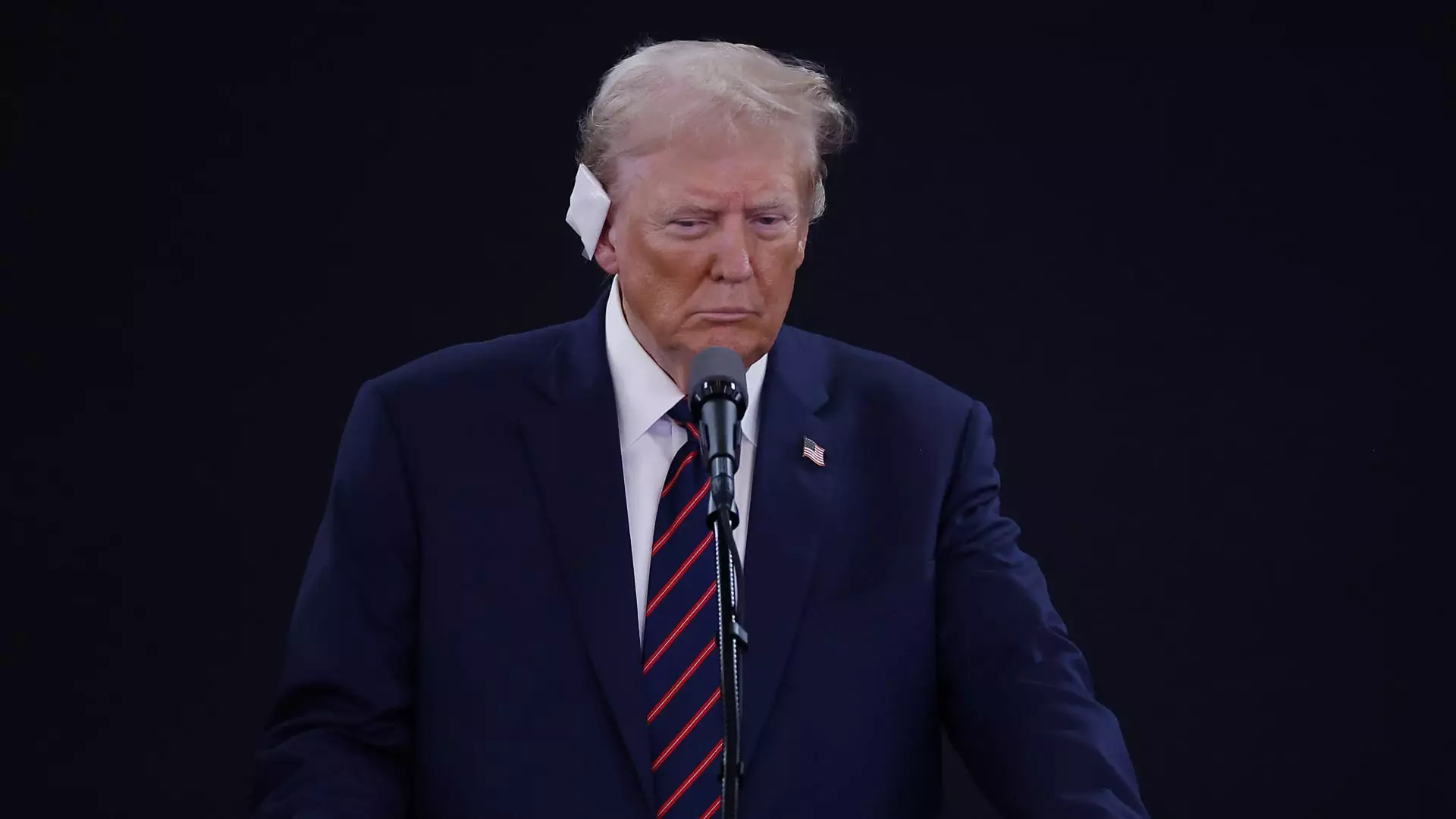In an unprecedented shift from his traditional style, Donald Trump is reportedly intending to avoid naming President Joe Biden during his acceptance speech for the Republican presidential nomination at the upcoming Republican National Convention in Milwaukee. This decision indicates a substantial change from Trump’s habitual approach, which has typically involved direct and often derogatory references to his political adversaries, regardless of their party affiliation. By opting for vague references to “the current administration” or “the current leadership,” it seems Trump is maneuvering within a rapidly changing political climate that increasingly questions whether Biden will even be on the ballot come November.
Within the Democratic Party, there exists an undercurrent of skepticism regarding President Biden’s viability as a candidate for re-election. Influential figures within the party have expressed growing anxiety about Biden’s ability to secure a win against Trump, fearing that his candidacy could lead to dire consequences not just for his own campaign but for the party as a whole. Amidst this turmoil, a chorus of voices is calling for Biden to consider stepping aside, as speculation mounts that he may not be the strongest contender, thus jeopardizing the party’s chances of maintaining control of both legislative bodies.
The overwhelming concern is palpable: Can a Biden-led ticket truly inspire confidence among voters? This question looms large over not just the Democratic primaries but shapes the entire political dialogue. The dilemma highlights the precarious balance between party loyalty and the need for a competitive candidate capable of rallying support.
Adding a layer of complexity to the political landscape is Trump’s recent brush with violence. Just days before his speech, the former president survived a harrowing situation at a campaign event in Pennsylvania where gunfire erupted, resulting in casualties and further igniting discussions about political safety in an increasingly polarized environment. Having sustained injuries himself, Trump’s demeanor has been reported as notably changed. Attendees and observers have suggested that the shadow of this violent incident looms heavily over him as he prepares to speak.
This experience reflects a broader narrative of escalation in political violence, raising alarms about the state of democracy in the United States. As politicians on both sides grapple with heightened emotions and deep-seated divisions, questions arise about the safety and stability of public forums that should ideally encourage open dialogue rather than fear and hostility.
Amidst electoral preparations and challenges, Trump is also engaged in a turbulent legal battle. He faces sentences and charges relating to various alleged wrongdoings, including accusations tied to his previous presidential campaign and contentious claims concerning election integrity. While he has experienced setbacks in some legal cases, such as the recent dismissal of charges related to classified documents, the specter of ongoing legal scrutiny complicates his candidacy. Each development in his legal journey evokes speculation about how these issues may influence voters’ perceptions–will they see him as a victim of a politically motivated witch hunt, or as a figure unworthy of leadership amid such serious allegations?
The paradox of Trump’s situation is striking. He simultaneously presents himself as a fighter against a supposedly corrupt system while battling in multiple legal arenas, each case reflecting deeper faults within the political framework itself.
As Trump prepares for his pivotal speech, the political landscape is marked by uncertainty, fear, and potential instability. His decision to refrain from directly engaging with Biden indicates not only a strategic pivot but also underscores the fragile state of party dynamics and electoral prospects. For the Democratic Party, internal debates about leadership reveal a striking reality: the road to the upcoming elections is anything but predictable.
In this era of hyper-political discourse, the challenges each party faces boil down to fundamental questions about leadership, safety, and the integrity of democratic processes. As the nation looks ahead to the future, one thing becomes clear: the outcomes of these unfolding narratives will have lasting implications, not just for Trump and Biden, but for the fabric of American democracy itself.


Leave a Reply